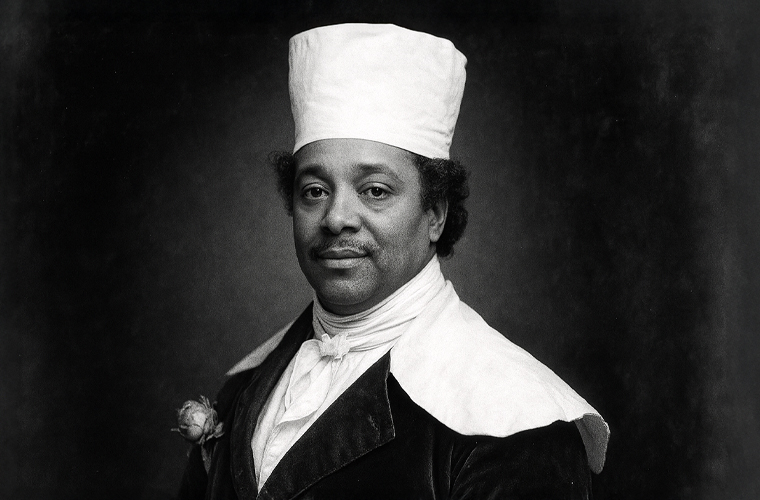Hercules Posey, also known simply as Hercules, was an enslaved African man owned by George Washington, the first President of the United States. Born around the mid-18th century, likely in Virginia, Hercules was one of approximately 317 enslaved individuals at Mount Vernon, Washington’s plantation, by the time of Washington’s death in 1799. Hercules stood out for his exceptional culinary skills, earning a reputation as one of the most talented chefs of his time. As Washington’s head chef, he prepared sophisticated meals for the president, his family, and distinguished guests, including foreign dignitaries and political figures, first at Mount Vernon and later at the President’s House in Philadelphia, the temporary capital of the United States from 1790 to 1800.
Hercules’ role as a chef was demanding and prestigious within the context of his enslavement. He oversaw the kitchen operations, managed other enslaved workers, and crafted elaborate multi-course meals that adhered to the high standards of 18th-century elite dining. His menus likely featured a mix of European-inspired dishes, such as roasts, pies, and puddings, alongside regional American ingredients like corn, fish, and game. Historical accounts suggest Hercules was known for his creativity and precision, qualities that made him a valued asset in Washington’s household. Some records indicate he was allowed to sell leftover food from the kitchen, earning a small income—unusual for an enslaved person—which he may have used to purchase fine clothing, as he was noted for dressing stylishly.
Despite his skills and contributions, Hercules remained enslaved, subject to the same brutal realities of bondage as others. The Washingtons, while publicly expressing discomfort with slavery, continued to uphold the institution. George Washington’s will stipulated that his slaves be freed only after his wife Martha’s death, and even then, only those directly owned by him were included, excluding many like Hercules, who may have been legally owned by Martha or her estate from her first marriage. This legal distinction complicated the lives of enslaved people at Mount Vernon, as their fates were tied to the Washington family’s decisions.
In February 1797, during Washington’s second term as president, Hercules escaped from Mount Vernon, likely on or around February 22—Washington’s birthday—a symbolic date given the irony of fleeing from the man celebrated as the “father of American liberty.” Hercules made his way to Philadelphia, a city with a growing free Black community and a hub for abolitionist activity, including the Pennsylvania Abolition Society. Pennsylvania’s Gradual Abolition Act of 1780 offered some protections, such as prohibiting the return of escaped slaves to out-of-state owners after six months of residence, which may have influenced Hercules’ decision to flee there. However, his escape was fraught with risk, as slave catchers and legal loopholes posed constant threats to fugitive slaves.
Hercules’ escape was a bold act of resistance, reflecting both his desire for freedom and the broader struggle of enslaved people during this era. Little is known about his life after escaping, which underscores the challenges of tracing the histories of enslaved individuals due to sparse records. Some accounts suggest he may have lived as a free man in Philadelphia or possibly New York, but no definitive evidence confirms his whereabouts or fate after 1797. One unverified report claims he was later seen in New York City, working as a cook, but his trail fades there.
Hercules’ story is emblematic of the contradictions of the early American republic, where ideals of liberty coexisted with the institution of slavery. His culinary contributions were integral to Washington’s public image as a hospitable leader, yet he was denied the very freedom Washington championed. His escape also highlights the agency of enslaved people, who, despite systemic oppression, took immense risks to claim their autonomy. Hercules’ life intersects with other notable enslaved figures at Mount Vernon, such as Ona Judge, another of Washington’s enslaved who also escaped to freedom in 1796.
Recent scholarship and public history efforts have sought to recover Hercules’ legacy, often overshadowed by the focus on Washington himself. For example, the Mount Vernon estate and historians have worked to highlight the contributions and humanity of enslaved individuals like Hercules through exhibits and research. His story raises critical questions about the moral failures of America’s founding generation and the enduring impact of slavery on the nation’s history.
Hercules Posey’s life, though only partially documented, serves as a powerful reminder of the resilience and resistance of enslaved people. His culinary talents, his role in the Washington household, and his courageous escape illuminate the complexities of slavery in the early United States, urging us to confront the uncomfortable truths of the past while honoring the individuals who fought for their freedom against overwhelming odds.

